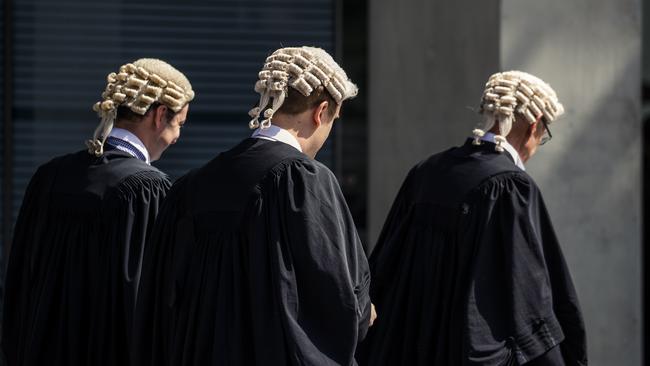‘Career-ending’: Gen Z lawyers warned against right to disconnect laws
Young lawyers cautioned against weaponising Labor’s workplace laws, with one legal heavyweight saying it could be ‘career-ending’.

Young lawyers are being cautioned against weaponising Labor’s new right to disconnect laws against their employers, with one legal heavyweight warning flaunting the laws could possibly be “career-ending” for budding talent.
After laws passed parliament last week allowing workers the right to ignore “unreasonable” after-hour contact from their employers, legal industry leaders say that their young workers understand taking calls after hours is simply “part and parcel” with the job.
Leading workplace silk Jeffrey Phillips SC told The Australian that the Albanese government’s reforms, ushered in with the help of the Greens, were “silly” and “unworkable” for the legal industry.
“In certain industries, they might be appropriate. But if you’re just looking at the legal industry, it’s silly,” he said. “I just think it’s unworkable … It’s a professional industry. If your client needs you, you should take the call. If your partner needs to speak to you about a matter, you should take the call.”
Mr Phillips said a young lawyer employing the laws against a boss could be “career-ending or career-stalling”, and suggested that a lawyer refusing to take a phone call from a client was “nonsense”.
“If something has to happen out of hours, it just has to happen,” he said. “It’s a sledgehammer to crack open a walnut.”
The comments come months after High Court justice Jayne Jagot called out a culture of “exploitation” perpetuated by senior lawyers leveraging their power to trap young workers, expect them to be on call 24/7 and blame them for mistakes they themselves have made.
Just last year, The Australian reported legal practices are haemorrhaging young lawyers who leave due to their harsh treatment and exhausting hours, after it was revealed young solicitor Isabel Muscatello had allegedly been sacked from firm Sydney Criminal Lawyers for taking a sick day.
Mr Phillips said that there is a severe culture of overwork for junior lawyers, but those issues could be mitigated within the firm.
“Something needs to change,” he said. “You don’t want to burn people out too young or get them to leave the industry because of all the work they’ve done. That’s something which each firm has got to manage in their own way, and I think it can be very unfair for young lawyers.”
Asked how he thinks law firms should support their juniors, Mr Phillips said: “People have got to be sensitive to people’s needs.”
“If you’re a good leader, you’re not going to grind your people into the dirt. Make sure they are developed and they are well rested,” he said. “But, from time to time, big things happen when you’ve got to come back to work on the weekends. I think you’ll find most lawyers, particularly litigation, work on the weekend.”
Mr Phillips suggested the best way for firms to combat any incoming litigation off the back of the new laws was to include contract clauses that make it clear that reasonable work outside of hours will be an expectation.
Eaton Strategy + Search legal research partner Shaaron Dalton told The Australian it is up to the firm to determine how the new laws are navigated, but said “the lawyers who want to get ahead will continue to do what is necessary within reasonable bounds.”
“I’d say Gen Z generally don’t like working outside hours if they can possibly manage it,” she said. “But that said, if you want to get ahead, if you want to get put on the best deals, if you want to get the best litigation matters, if you want to be part of a team that is doing really amazing work, then there may be further demands that you have to just suck up.”
Ms Dalton said it was not uncommon for lawyers to be contacted by clients or colleagues around the clock.
“I know of many lawyers who have been contacted not just after hours, but in the wee small hours of the morning, by partners who are on a transaction and need their input as soon as possible, if not immediately, at three o’clock in the morning,” she said. “I just wonder how you can go from that to nothing. It might be really, really tough. I think it’s going to require firms to have conversations with their clients who are going to be under the same conditions.”
Swaab workplace partner Michael Byrnes said the laws were not a prohibition on employer making contact with an employee – unless orders are made to that effect by the Fair Work Commission – but rather the laws give the employee a right to refuse contact.
“I think that a lot of young, professional people who are in roles where they see themselves progressing in their career will take the view that it’s just part and parcel of being a young professional or a young executive or junior level professional or executive,” he said.
“Even though it could be argued that their level of responsibility is still at a relatively low level, and their remuneration is still relatively low … they, nevertheless, have an eye to the bigger picture, or the longer term, and say, this is this is part and parcel of being a lawyer – to take calls out of hours to respond to matters out of hours.”








To join the conversation, please log in. Don't have an account? Register
Join the conversation, you are commenting as Logout